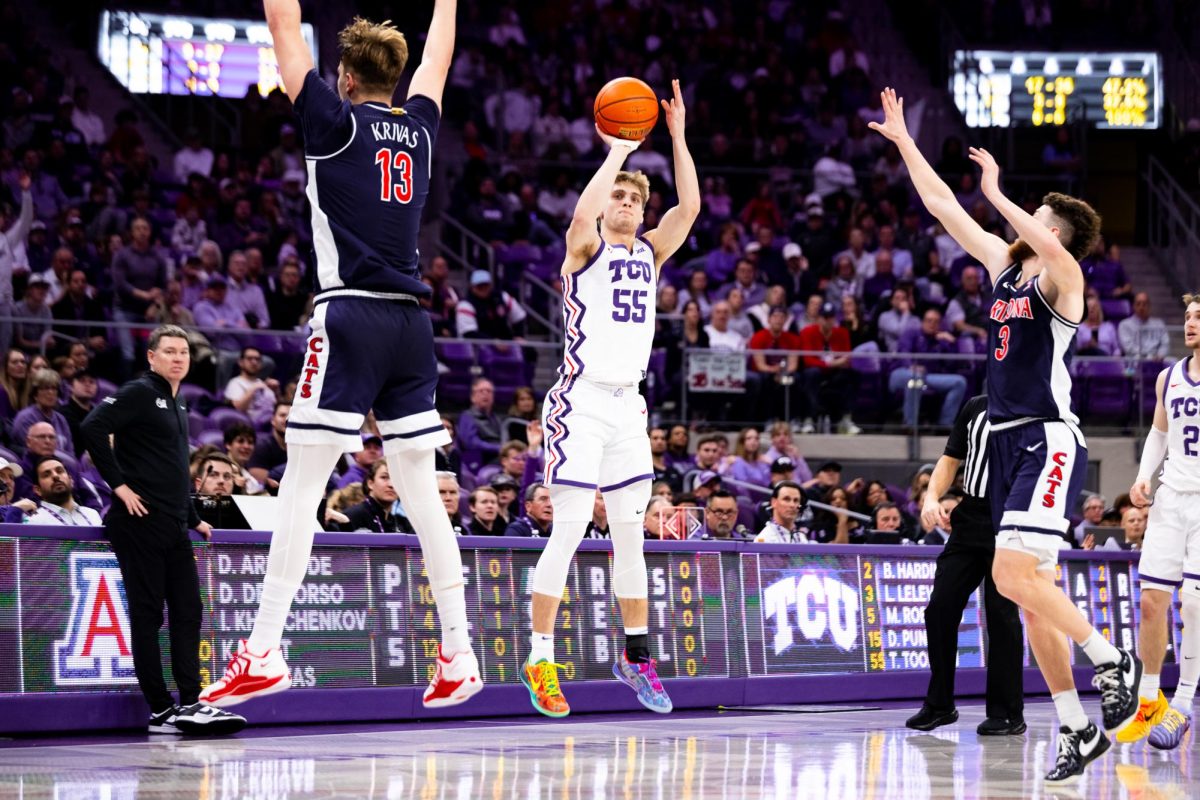Business students work on recycling project
Published Dec 1, 2011
Students in the entrepreneurship and energy class in the Neeley School of Business are continuing work with a local professional engineer on an innovative water recycling system. Rod Ekern, president of Hagan Engineering in Bedford, created the system with the intention of helping to save the drinkable water supply in North Texas. The system is designed to recycle the used water from showers, washing machines and bathroom sinks. The water would be piped around the foundation of the home, ending up in the yard to be used for irrigation purposes. The system is not made up of any mechanical, electrical or pumping systems, Ekern said. He said it would be safer for the environment because it doesn’t use any power and needs low-maintenance care. “Pretty much you put it in the ground and forget about it,” Ekern said. He said the product would likely last as long as the life of the home, with minimal maintenance. Ekern said he got the idea to create the product while thinking about a new way to help people handle this summer’s drought. “Here in the area, we were reaching the point that we didn’t have enough rain to provide for the amount of water we were using,” he said. “I wanted to create something to help equal that out.” Professor of entrepreneurship and energy Louis Stripling said he read an article about Ekern’s design in the Fort Worth Star-Telegram and decided to approach him about working with the class. “We started working with him around mid-October,” Stripling said. “We met with him in class and started developing various aspects of the [business] discipline.” Senior business major Nick Parsley said the class was split into four groups to focus on market evaluation, finance, regulation and legal research. Parsley said his group looked into different areas of Texas legislation concerning the patented product, such as the legal aspects of installing the system in homes and the requirements for installation. A group of students presented the system to the Vice Chancellor Kathy Cavins-Tull to incorporate it into the new housing being built in the Greek. But first, the product must be circulated throughout the environmental, biology, chemistry and engineering departments to test how the system could be installed in the new buildings. Stripling said the spring entrepreneurship and energy class will continue work on the product’s business plan, hoping to enter the plan into a business contest next semester. The project was beneficial to both his students and Ekern, giving the engineer the opportunity to flesh out his business plan and giving students real-life experience, he said. “[The project] gives them the opportunity to latch onto something real, with more depth to it,” Stripling said. “It was not a business plan for something like a new cigar bar or fruit stand.” Parsley also said he recognized how the project would help him in future business endeavors, by giving him the chance to apply what he’s learned in his other business classes. Ekern said he had enjoyed watching students take his product and incorporate their own ideas. True entrepreneurs could recognize a problem and find ways to fix it with whatever resources they have available, he said. “If this design goes to market, these students can put on their resumes that they helped work on this product,” Ekern said. “It’s a good career boost.”


